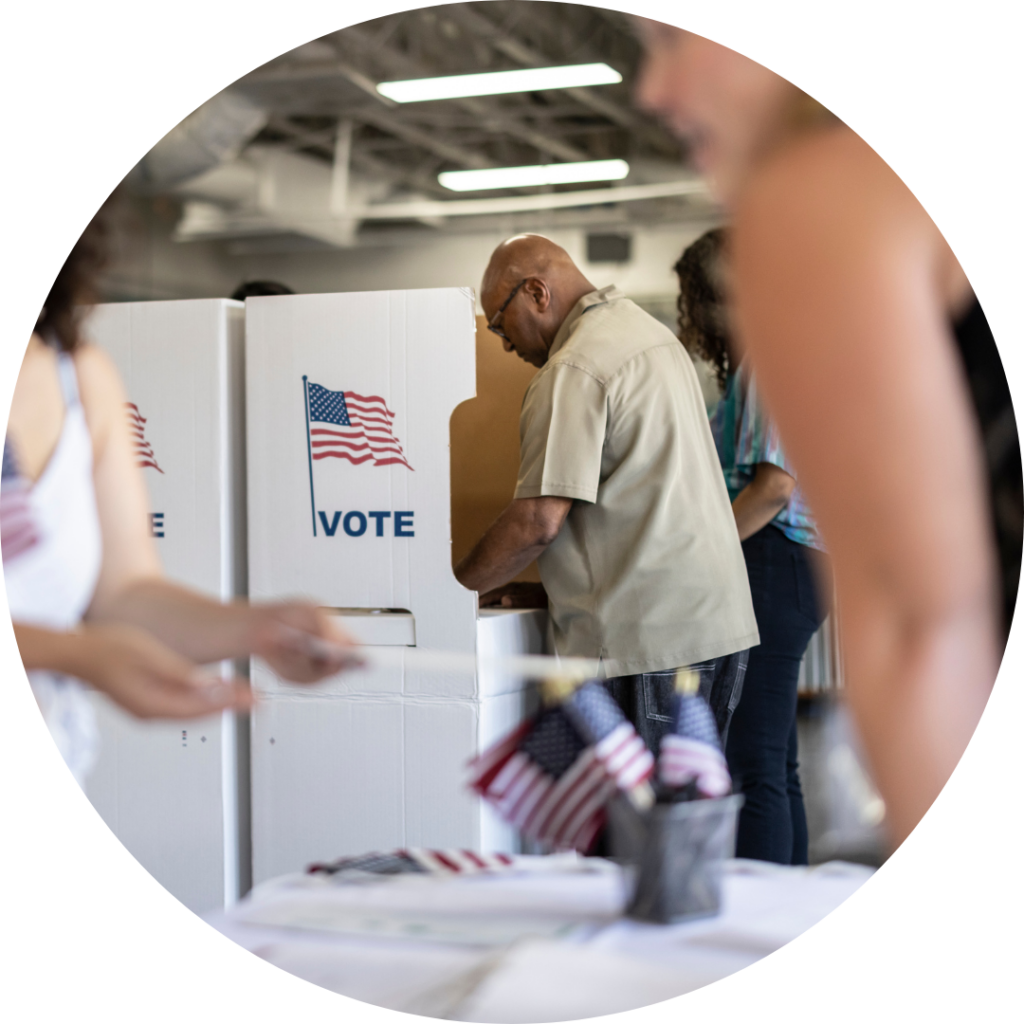With Families Struggling to Find & Afford Quality Child Care, Voters Are Ready for Action
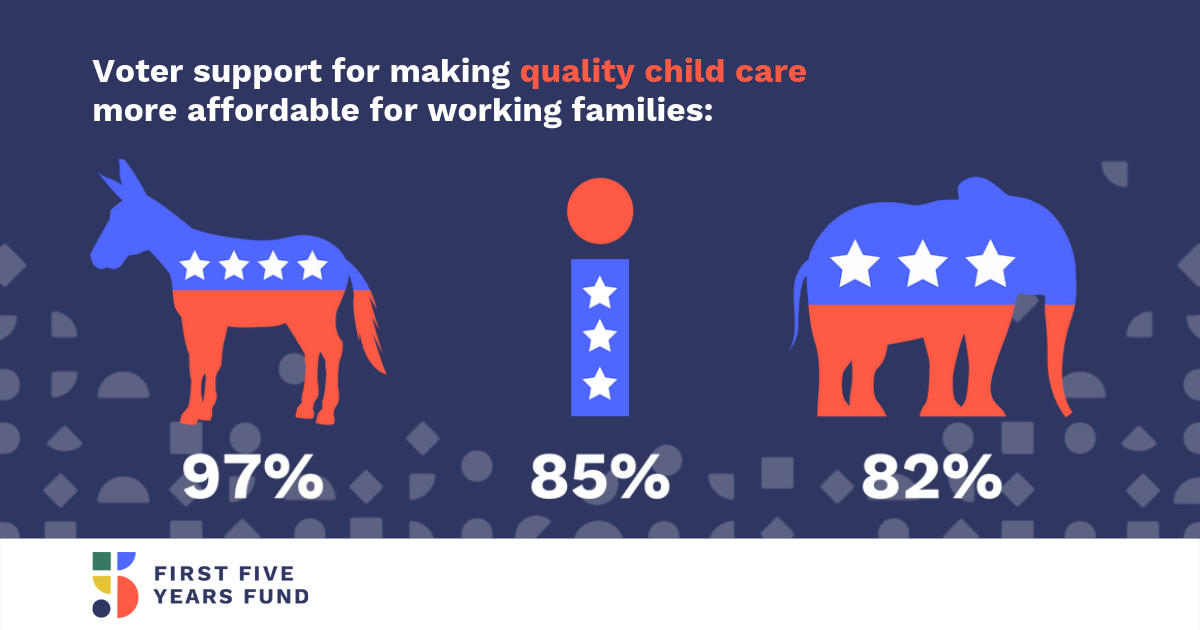
Child care isn’t a luxury for working families – it’s a necessity. Yet the cost of quality child care is greater than most other expenses families face. And recent data from the Center for American Progress shows that a majority of people in the United States live in a child care desert — any census tract with more than 50 children under age 5 that contains either no child care providers or so few options that there are more than three times as many children as licensed child care slots.
Access to affordable, reliable child care is critical for working families, offering parents better job stability and overall economic security. And just as importantly, high-quality care supports children’s healthy development. Investing in quality child care, particularly for low-income families, creates upward mobility by ensuring all children have the opportunity to develop foundations for long-term success in school and life.
The good news is, lawmakers and voters on both sides of the aisle agree that more must be done to ensure working families have access to quality child care.
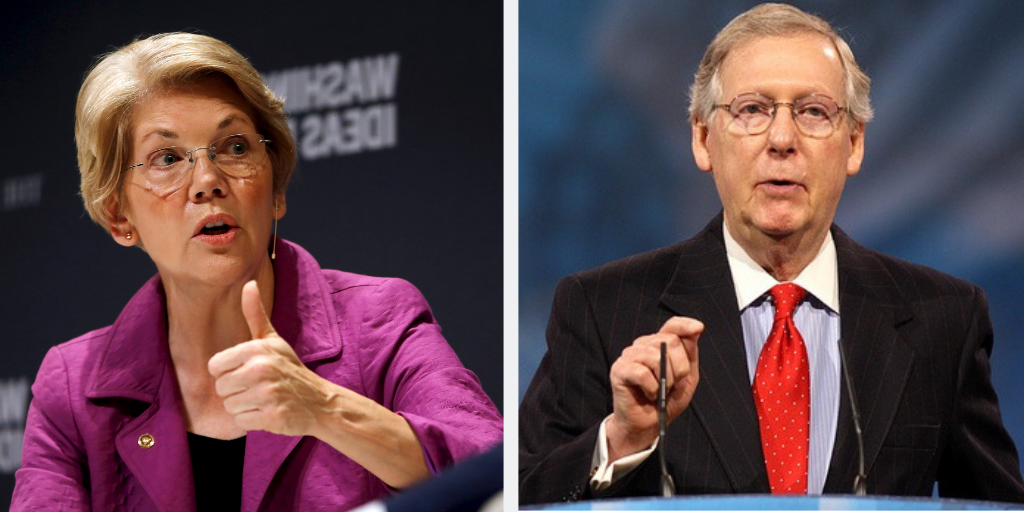
According to FFYF’s 2018 national poll, conducted in the days immediately following the 2018 Midterm Elections, voters on both sides of the aisle see quality child care as a rare, unifying policy issue, and they want solutions that help make child care more affordable for working families. Helping working families access high-quality child care isn’t a Democratic priority or a Republican priority — it’s an American priority.
Other key findings from this year’s poll:
- Democrats and independents overwhelmingly want to see increased funding for early learning and child care, even if it means the Trump administration can take credit for helping children and families.

- Voters see a critical lack of quality, affordable child care, regardless of their income level.
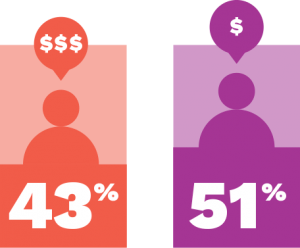
Only 15% say that most or all local programs available to lower- and middle-income families are high-quality and affordable. Respondents making over $100,000 per year are virtually just as likely (43%) as those who earn less than $40,000 per year (51%) to say that only some or few programs near them are affordable and high-quality.
- Two-thirds of American voters say we need to do more to ensure children start kindergarten with the knowledge and skills they need to do their best in school.
Parents and those without children at home share virtually the same view that more should be done to ensure children start school with the skills they need. 68% of parents and 64% of non-parents agree that more needs to be done.
- Majority of voters believe that federal funding for quality early education from birth to age five-including child care and preschool-should be increased.
And 79% of voters believe it’s important to make affordable high-quality child care programs for infants and toddlers to give them a strong start on developing school ready knowledge and social skills.
- Republicans, independents and Democrats all support proposals that will help more families access high-quality early learning and care opportunities:
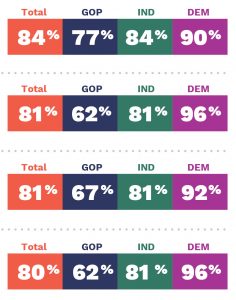
Provide tax incentives to businesses which provide or help their employees afford quality early childhood education programs: 52% strongly support; 84% support
Increase federal funding to states to create or build on their own programs that directly help low-income children: 54% strongly support; 81% support
Increase the child care tax credit to help parents better afford quality child care and early education programs: 50% strongly support; 81% support
- For members of Congress, there is no risk to supporting early childhood education – there’s only great reward.
Voters are 8 times more likely to have a more favorable opinion of their member of Congress for supporting policies and funding for quality early learning. In fact, more than one-in-four voters say that early childhood education is a primary factor in deciding whether to support an elected official.
FFYF has also conducted analysis that consolidates and synthesizes the findings of our years of publicly available research with that of other national and state polls – again showing the bipartisan nature of early childhood education and care. This arsenal of individual polls paints an even brighter picture when studied together as a collective body of research.
Americans are united when it comes to child care and their desire to have the issue remain a bipartisan priority.
Learn more about the bipartisan support for child care from our new national poll: http://ffyf.org/2018poll
Subscribe to FFYF First Look
Every morning, FFYF reports on the latest child care & early learning news from across the country. Subscribe and take 5 minutes to know what's happening in early childhood education.


